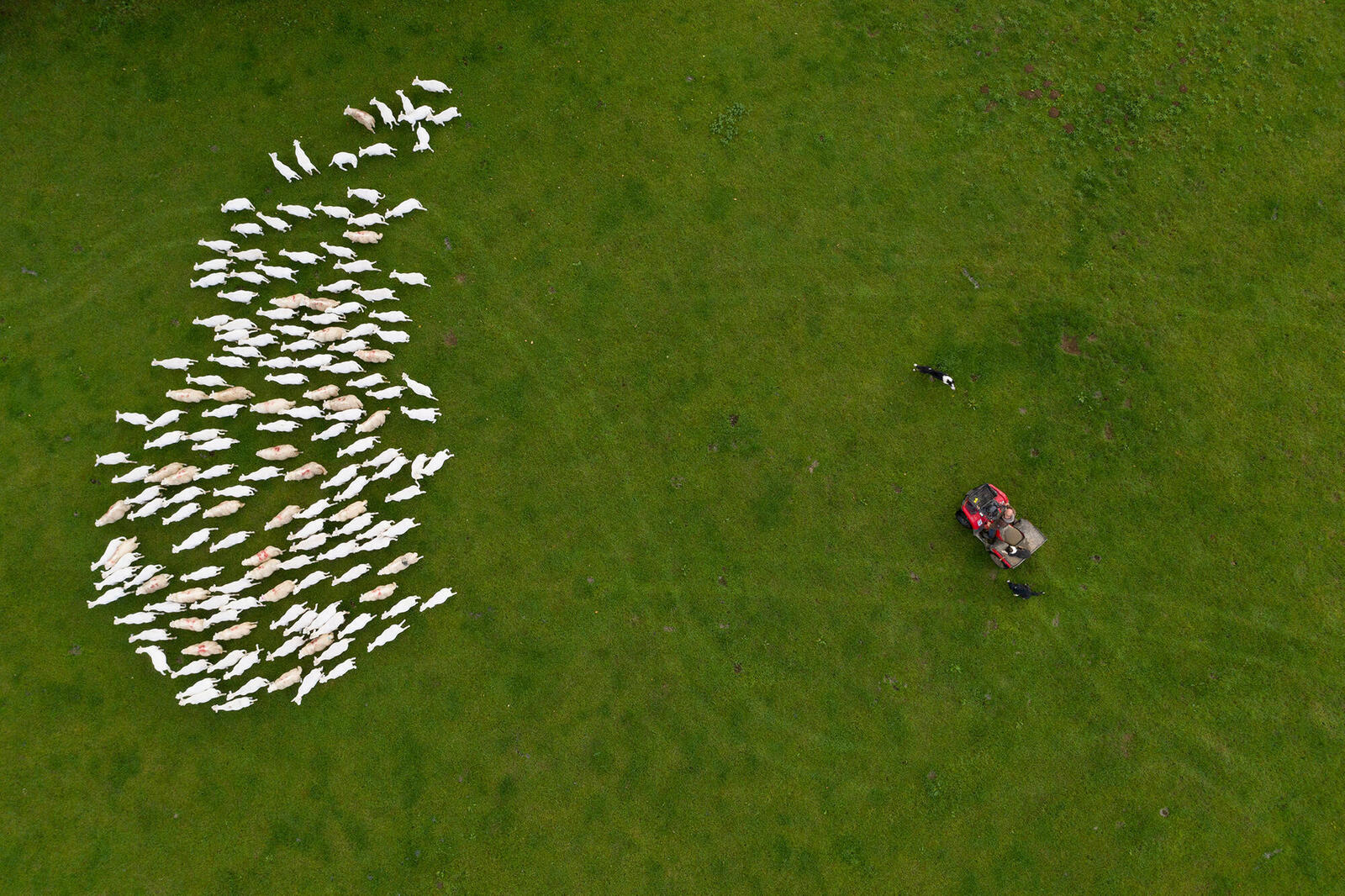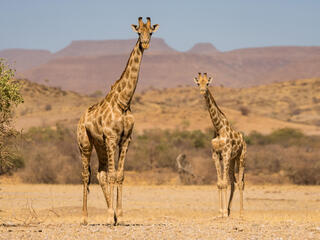LLANDOVERY :: WALES, UK
Hywel Morgan’s Esgair Llaethdy looks like many other Welsh hill farms: Fluffy sheep dot green pastures as far as the eye can see. But look closer, he says, and you’ll notice “there’s a reason, a purpose, for everything.” Ten years ago, Morgan switched to regenerative agriculture—a holistic, conservation-minded approach to land management. Since diversifying his grass species, quitting manufactured fertilizers, and balancing the number and breeds of animals he owns, Morgan has transformed his farm into a rich, symbiotic ecosystem.
An old-growth forest on the property provides a refuge for birds and for insects that pollinate nutritious plants such as birdsfoot trefoil, clovers, and vetches. Sheep munch on shorter grasses while native cattle graze on taller ones, helping maintain healthy vegetation and fertilizing the land. Dung beetles cycle soil nutrients and keep pests at bay.
Agriculture is a major driver of biodiversity loss in the UK. With some of the nation’s farmland bird populations having declined by 90% in 50 years, farmers like Morgan could play an important role in renewing depleted habitats and recovering native species. To support them, WWF-UK is calling on governments and food businesses to adopt ambitious policies and sourcing standards and create financial incentives that encourage farmers to restore nature while producing healthy, affordable food.
For Morgan, seeing peregrine falcons returning to nest at Esgair Llaethdy is a promising sign. So is his balance sheet: “I’m producing more food than I was 10 years ago,” he says. But most important, Morgan adds, his more hands-off agricultural practices have left him with more time for travel, rest, and family. “The best thing I’ve done this year is to spend time with my grandson. You can’t put a price on that.”



